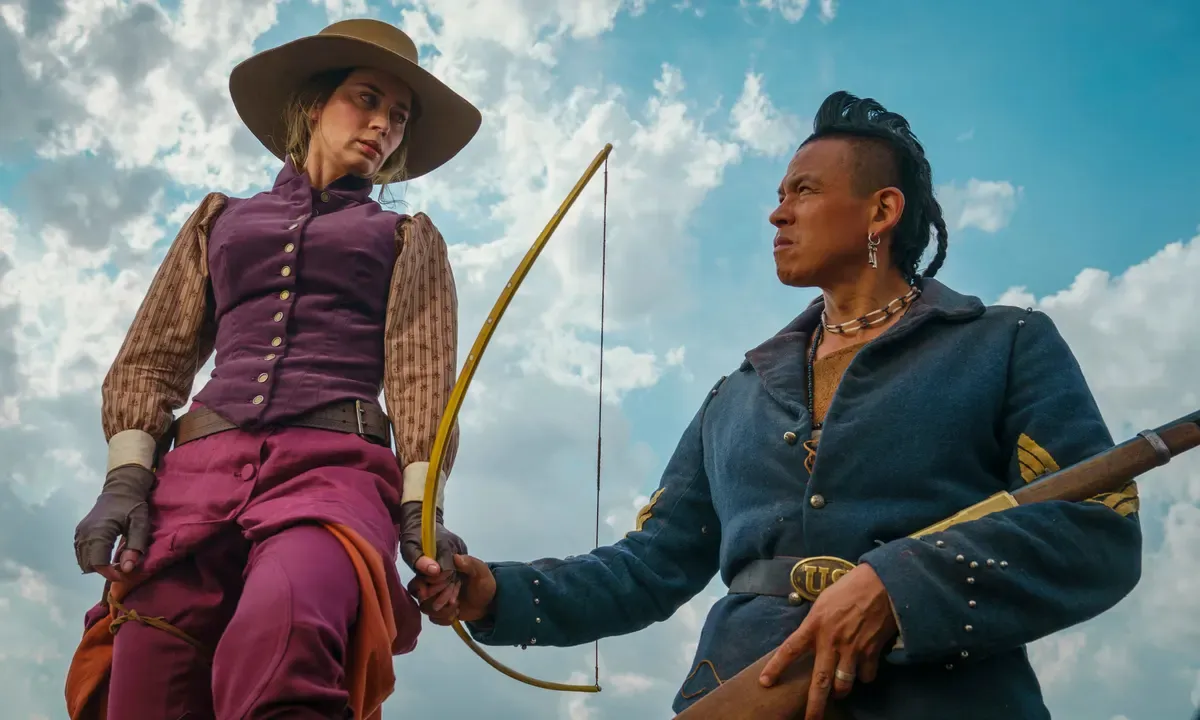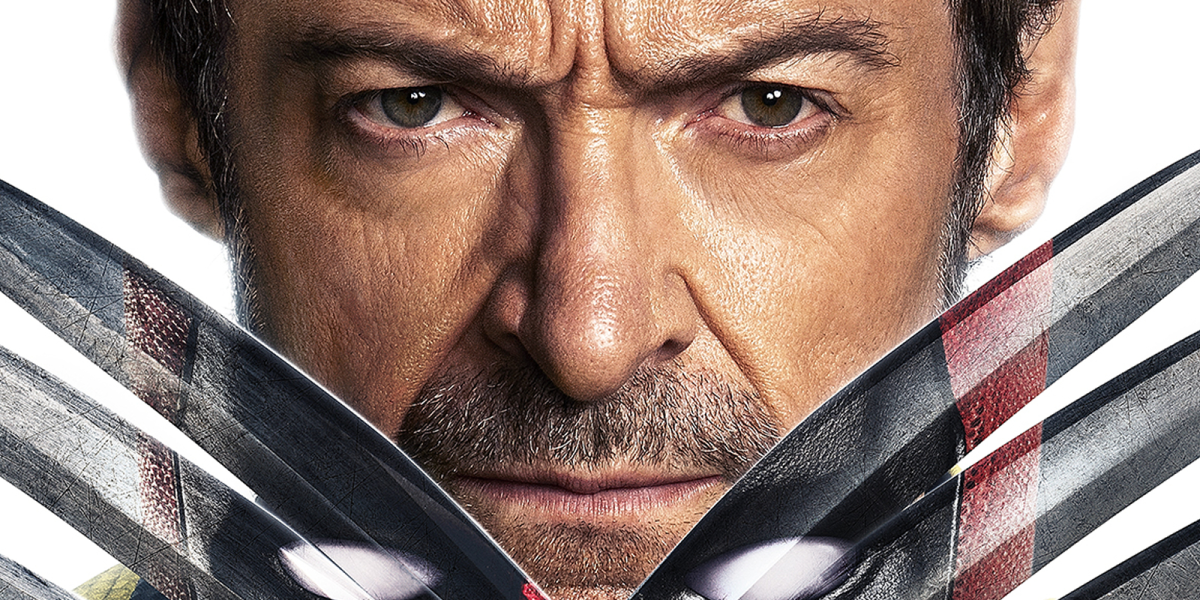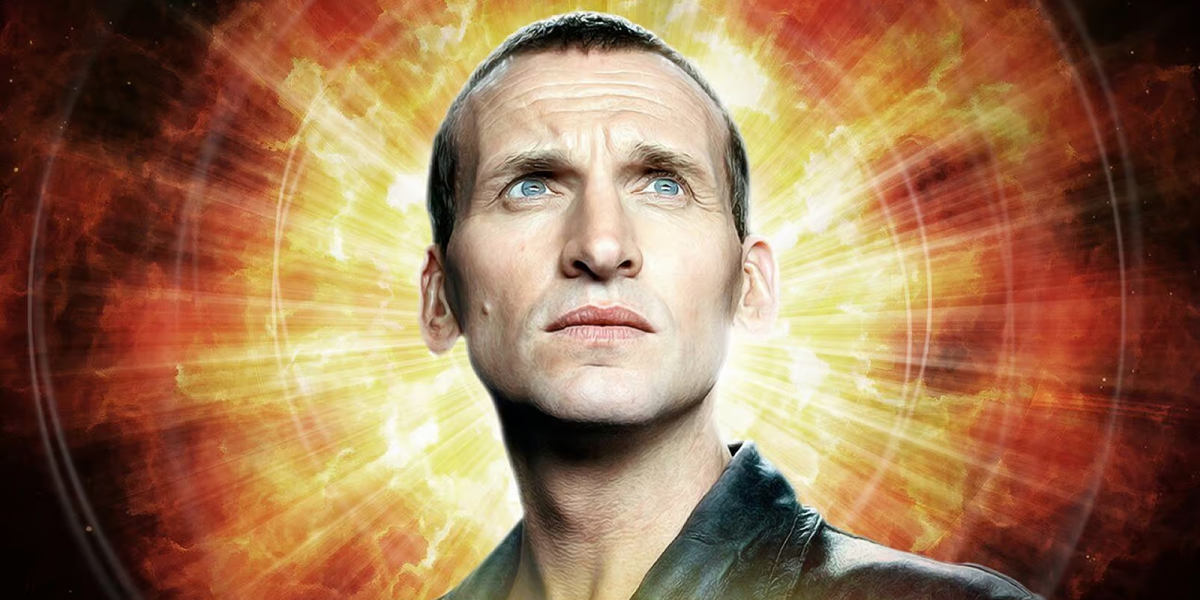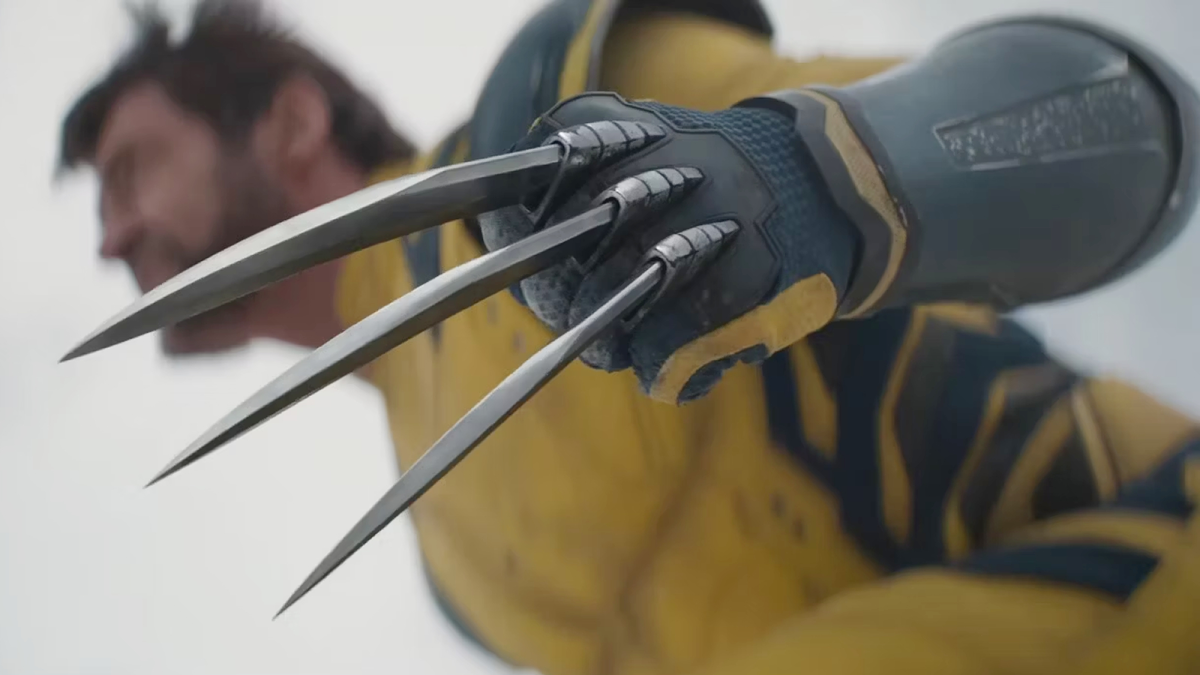This article contains spoilers for The English in how the BBC / Amazon series intertwines birth and death. The English is now streaming on BBC iPlayer and Amazon Prime.
In the world of The English, death and birth are frequently interwoven and inseparable.
In the show’s second episode, “Path of the Dead,” the bandit Captain Clegg (Jan Knightley) hesitates during a holdup when victim Hans Steiger (Maarten Dannenberg) explains his wife is with child. “That ain’t right,” Clegg concedes. “Death so close to new life.” Of course, Clegg’s change of heart is less than sincere. He has his accomplice Charlie White (Rod Rondeaux) shoot an arrow into Steiger’s heart as the man runs back to his family.
Later in the episode, the show’s protagonists Cornelia Locke (Emily Blunt) and Eli Whipp (Chaske Spencer) come across what remains of the Steiger family caravan. Wolves pick at the fresh meat. Steiger’s pregnant wife is dead, but Eli hears a heartbeat from her pregnant belly. Acting quickly and decisively, Eli is able to save the child from the womb of its dead mother. Simultaneously, Cornelia discovers the Steigers’ other child, Rachel (Matilda Ziobrowski), hiding beneath the wagon.
The English returns repeatedly to this blending of birth and death. In the premiere, “What You Want & What You Need,” Eli is introduced arriving in the aftermath of the extrajudicial killing of Running Hawk, who had taken part in the Fetterman Fight in 1866. Running Hawk’s head has been shot clean off, his blood dripping over the rocks and into the soil as a title card identifies the “newly created territory of Oklahoma, formerly Indian territory.” Destruction and creation are the same act.
Whipp prevents the assembled Union soldiers from murdering Running Hawk’s widow, Touching Ground (Tonantzin Carmelo), and his son, White Moon (Corey Bird). In the season’s penultimate episode, “The Buffalo Gun,” Cornelia and Eli cross paths with Touching Ground and White Moon in the encampment overseen by the psychotic Major MacKay (Stuart Milligan). The pair rescue White Moon from the camp, but Touching Ground dies ensuring their escape.
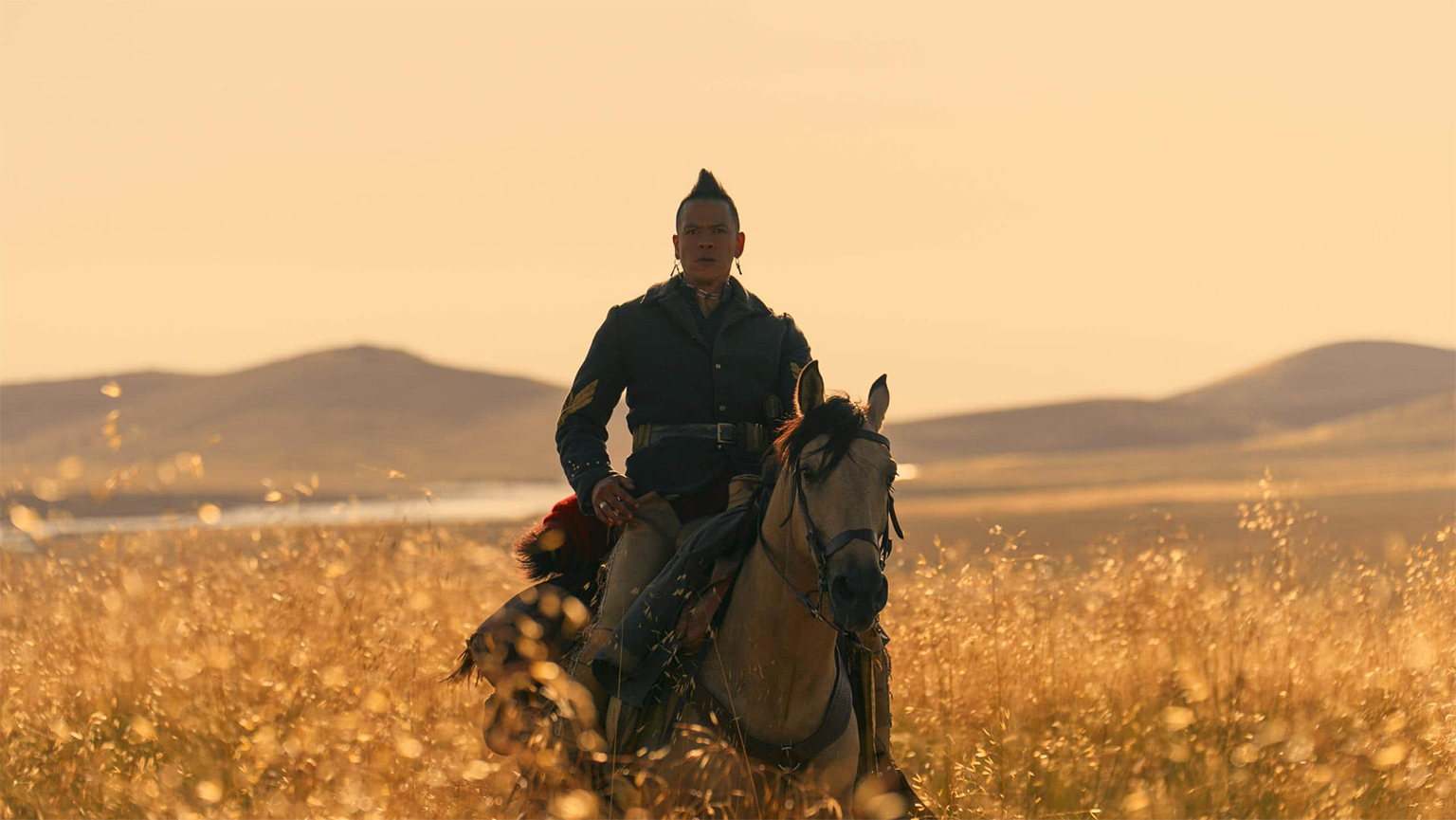
The big showdown in the show’s finale, “Cherished,” is built around the captivity of Jed Myers (Walt Klink). He is held hostage by his murderous father, David Melmont (Rafe Spall), during his standoff with Cornelia and Eli. Melmont is ultimately killed by the boy’s mother, Martha Myers (Valerie Pachner). Throughout The English, Eli and Cornelia repeatedly find themselves responsible for the lives of these children, often very close to the deaths of their parents.
Of course, these are just the children that live. In the show’s third episode, “Vultures on the Line,” Eli spends time with an indigenous couple that have managed to carve out a living for themselves, John (Gary Farmer) and Katie Clarke (Kimberly Guerrero). There is a graveyard at the edge of the property. Katie claims that the graves were for their children, none of whom lived longer than a year. “Christian?” Eli asks. Katie replies, “American.”
The central plot of The English is built around the classic western template of the revenge story. Cornelia has traveled to the United States to avenge herself on Melmont for the death of her son. The details of the story are kept deliberately vague during the early episodes of the season. It is unclear how or why Melmont would have killed Cornelia’s son. However, “Cherished” eventually reveals the whole sad story. It is more complicated and more tragic than the premise suggests.
In a flashback during the fourth episode, “The Wounded Wolf,” it is revealed that Cornelia was raped by Melmont. Her child was the product of that union. “Cherished” reveals that Melmont had contracted syphilis and passed that on to both Cornelia and their unborn child. “My son was born with it,” she explains. “I nursed him with it, all his life.” He died after 14 years, but he received a death sentence at the moment of conception. Death and birth, tied up in the same moment.
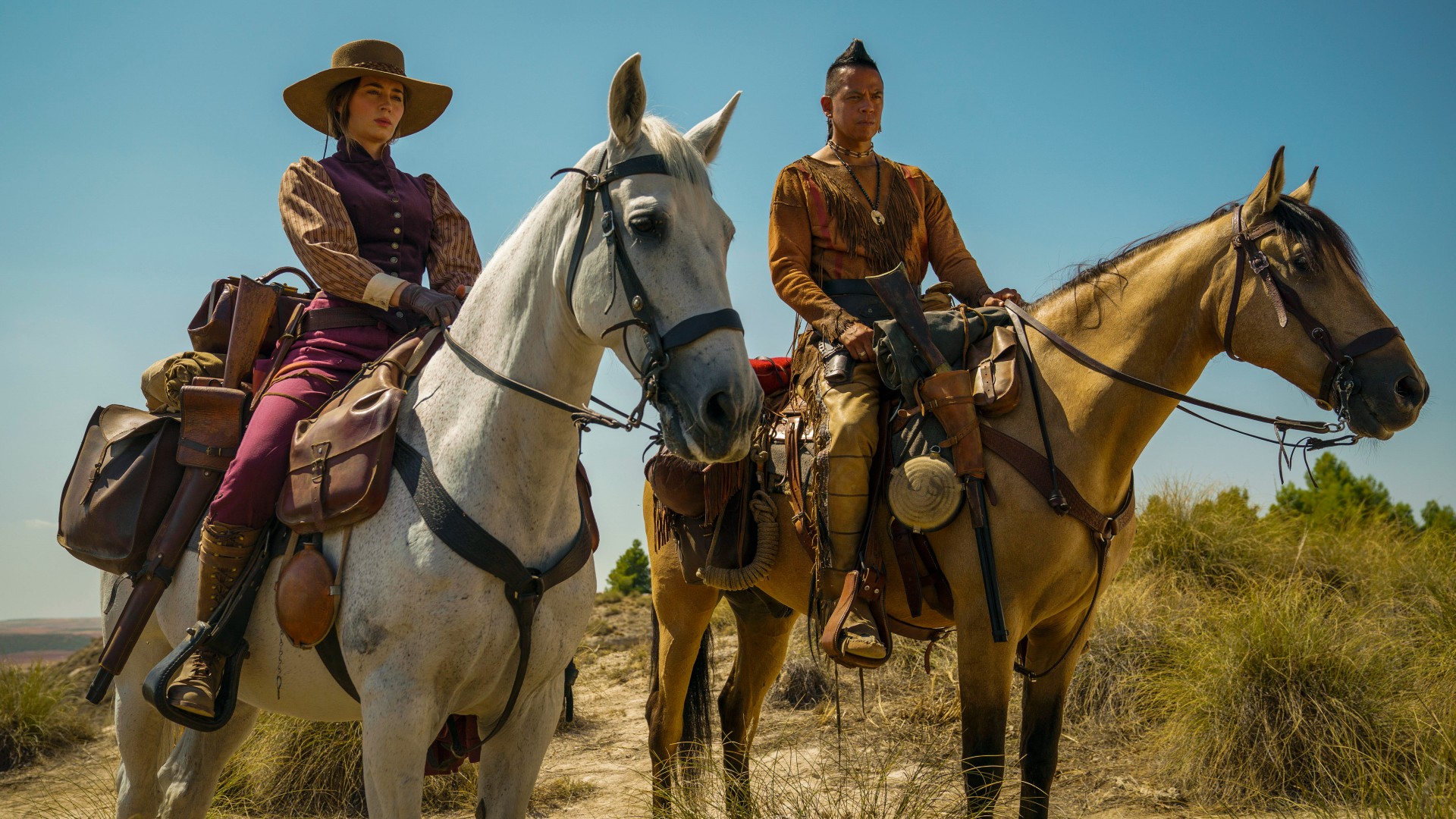
The English suggests that this story is in some way a parable about the American frontier. Psychologist William Indick has argued that the western is perhaps best understood as “an American creation myth.” Indeed, the genre appeals to certain fantasies of American self-image, playing into rugged individualism as a national virtue and reinforcing the classic idea that anybody can be what they make of themselves.
Historian Frederick J. Turner boasted in 1893 of the frontier’s capacity to “furnish a new field of opportunity, a gate of escape from the bondage of the past.” As such, the frontier is best understood in the western as a place of birth — or even rebirth. “You know the greatest enemy to an Indian?” John asks Eli. “Our past. We have to turn our backs on it if we have any hope to survive.” The western frontier offers the fantasy of a new beginning, a place to be born anew. However, perhaps every creation myth requires an apocalypse.
The English is told from the perspective of two characters who represent the past from which so many of these settlers hope to escape. Cornelia comes from the same “old world” as many of these settlers, a world governed by the rules of civilized society. Eli is a relic of a different sort of “old world,” one that is more frequently ignored in the construction of these narratives: the world paved over to make room for this “new field of opportunity.”
The show keeps cutting away from Eli and Cornelia’s journey to a spate of mysterious incidents in the nascent township of Hoxem in Wyoming. Once again, the imagery is not subtle. In the show’s first scene set in Hoxem, Thomas Trafford (Tom Hughes) presents Sheriff Robert Marshall (Stephen Rea) with a stillborn calf, another mingling of birth and death. However, as the show unfolds, it becomes a disjointed and out-of-sequence history of this seemingly idyllic frontier town.
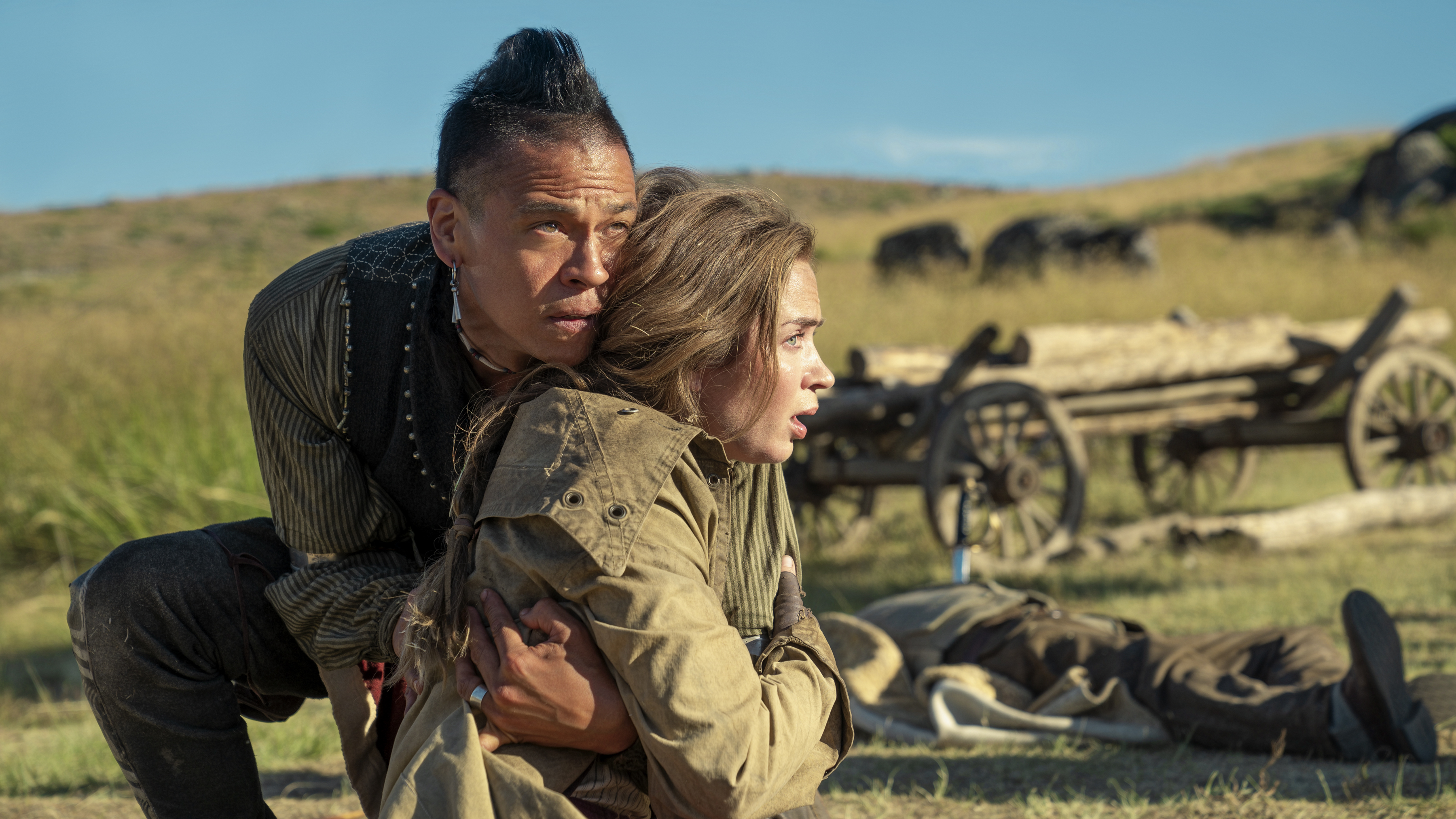
The land belonged to the indigenous people, but that tribe was massacred by Union deserter Jerome McClintock (Julian Bleach), who had continued his pursuit of Running Hawk past all boundaries of reason. “There’s where it happened,” Thomas confesses. “Right there. There’s where they’re all buried. Even now. Built the town on top of them.” Later, Eli and Cornelia arrive in town. “You know what’s beneath that street?” Marshall asks Eli. “History. And that’s where they’re gonna keep it.”
As the title implies, The English examines the western from a very British perspective. In particular, it is built around the idea that the violence of the American frontier was just a perpetuation of more subtle forms of class violence overseas. Melmont traveled to America with Thomas. When Thin Kelly (Steve Wall) grows uneasy at how casually Melmont takes to the violence of the frontier, Thomas remains certain that the mores of British society will continue to restrain Melmont.
“In England, we have a class system,” Thomas insists. “For better or worse, David Melmont knows exactly where he sits.” Thin Kelly remains unconvinced. “Yeah?” he replies. “Well, we don’t have that here. So you best keep an eye on it. I’ve seen what happens to men like him in a place like this. Sometimes freedom ain’t pretty.” Inevitably, Thin Kelly is correct. Melmont’s simmering class resentments boil over when he is let loose in a landscape without such rules.
This gets at the other recurring imagery in The English. The show isn’t just preoccupied with children, but also animals. The show fixates on imagery of wolves, cattle, and vultures, as if to suggest the primal laws that govern this landscape — and the roles into which people fall. Appropriately enough, Eli’s Pawnee name is “Wounded Wolf,” which prompts Sebold Cusk (Toby Jones) to wonder whether the anglicized surname Whipp derived from the idea that he was “a whipped dog.”
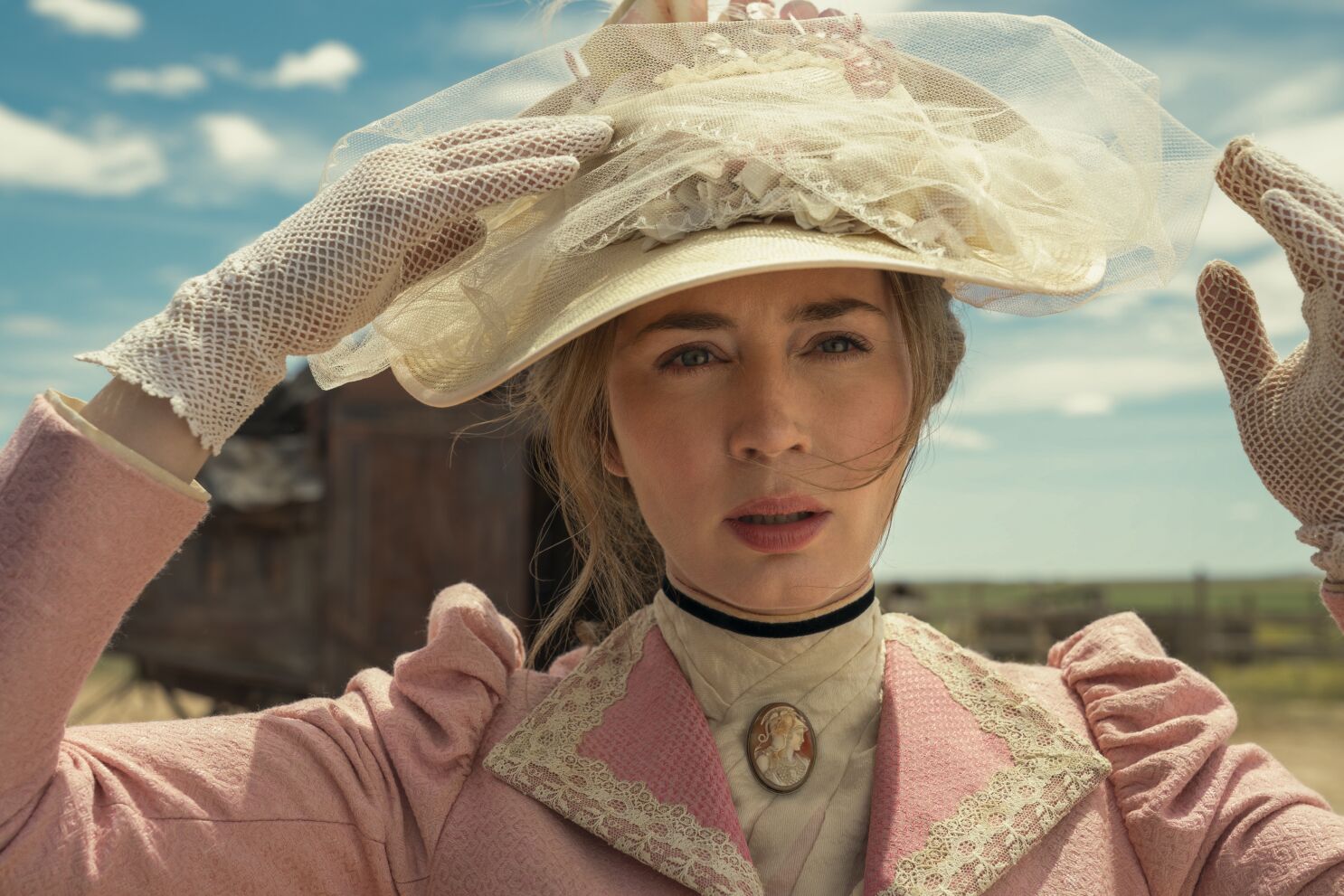
This is perhaps how Melmont thrived in this lawless environment. “See… see, I’m like you,” he tells McClintock. “Like, I spent all my life in the meat business. Not your meat business, the meat business. Abattoirs. From the blood yards to the boardrooms, I know what it’s like. And you gentlemen are the slaughtermen of my trade. Like, you do things that others care not to think about, that must be done. And out here, right now, something must be done.”
For this romantic myth of the “new world” to live, the old one must die. As unsettling and as brutal as the violence committed by Melmont might be, The English suggests that the real horror lies beyond simple bloodshed. The mass murder of the indigenous population by these “slaughtermen” is a monstrous crime that goes largely unpunished, but that is just one expression of this erasure of that which came before. There is a more abstract process of extermination and eradication at play.
Early in “Vultures on the Line,” E.J. Jenson (Nathan Osgood) assures Cornelia that “a culturalization” of the indigenous population is necessary for America’s future. “What the body does to the parasite, society must do to the Indian,” he advises her, proudly. “If you want to survive in a white man’s world, you have to become one.” Major MacKay boasts about the schools to which the survivors of these indigenous communities are sent, designed to erase any sense of their culture.
In the final scenes of The English, an aging and syphilitic Cornelia reunites with an older White Moon (Forrest Goodluck), who has come to England as part of a touring wild west show overseen by Flathead Jackson (Jack Klaff). Cornelia protests that he could leave the tour. “And become… what?” he asks. “Join one of them schools? Become an American?” Cornelia counters, “This is just a circus.” White Moon corrects her, “A zoo.”
Like so many westerns, The English is the story of the formation of a new nation. However, it also understands that this process of birth is tied up in the death and erasure of the worlds that came before.

